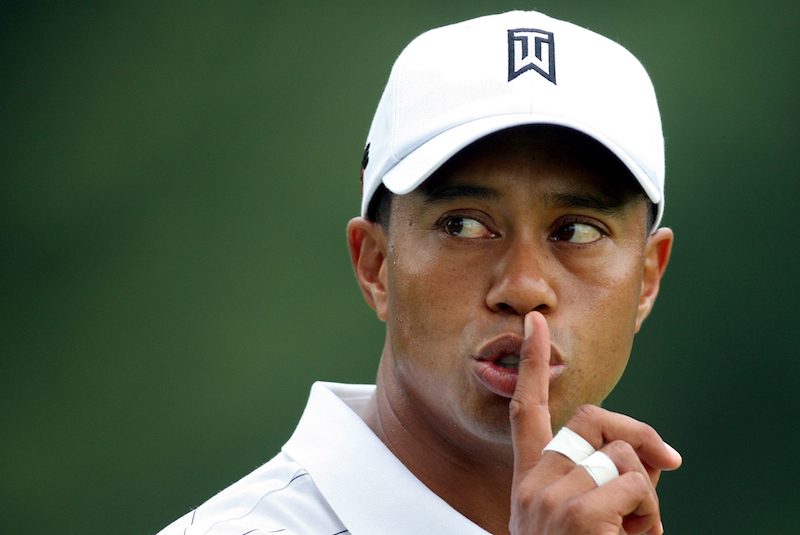Introduction
Welcome to a world filled with gripping narratives, unexpected twists, and shocking revelations – the world of sports scandals. Throughout the history of sports, there have been moments that have left fans, athletes, and governing bodies in disbelief. These scandals have not only tarnished the reputation of the individuals involved but have also cast a shadow over the entire sporting world.
In this blog post, we will delve into some of the most notorious sports scandals of all time. From controversies involving doping and cheating to match-fixing and conspiracies, these stories remind us that the pursuit of victory can sometimes lead down a dark and scandalous path. Let’s take a closer look at these incidents that have left an indelible mark on the world of
1. Black Sox Scandal (1919)
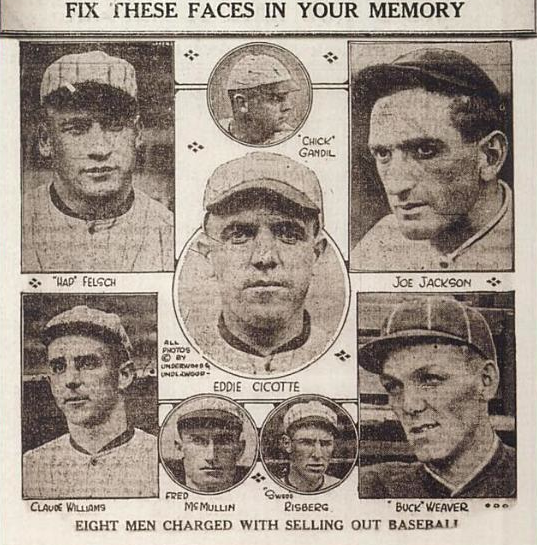
The Black Sox Scandal of 1919 remains one of the most infamous and heartbreaking incidents in the history of baseball. This scandal revolved around the Chicago White Sox, who were accused of intentionally losing the 1919 World Series against the Cincinnati Reds in exchange for financial rewards from gamblers. Here’s a closer look at the details:
Background:
In 1919, the Chicago White Sox were a formidable team, led by talented players like “Shoeless” Joe Jackson, Eddie Cicotte, and Buck Weaver. They were heavily favored to win the World Series against the Cincinnati Reds.
The Fix:
A group of gamblers, including Arnold Rothstein, approached several White Sox players with an offer to intentionally lose the games. Eight players, including Jackson and Cicotte, agreed to participate in the fix for a promised sum of money.
The Scandal Unravels:
As the series progressed, suspicions arose due to the lackluster performance of the White Sox. Rumors of a fix began to circulate. Ultimately, the Reds won the series, and the scandal came to light when a grand jury was convened to investigate.
Legal Proceedings:
The eight players involved in the scandal, known as the “Black Sox,” were put on trial for conspiring to fix the World Series. They were acquitted, but Commissioner Kenesaw Mountain Landis banned all eight players from professional baseball for life.
Impact:
The Black Sox Scandal had a profound impact on baseball. It led to the appointment of Kenesaw Mountain Landis as the first Commissioner of Baseball, with a mandate to clean up the sport. Landis’s no-tolerance policy for gambling and cheating set the tone for the future of baseball.
Legacy:
The Black Sox Scandal remains a dark chapter in the history of baseball, tarnishing the reputation of the sport and the players involved. It serves as a cautionary tale about the dangers of gambling-related corruption in professional sports and the importance of maintaining the integrity of the game.
Key Takeaways:
- The 1919 Black Sox Scandal involved the Chicago White Sox intentionally losing the World Series for financial gain.
- Eight players were banned from baseball for life, and Commissioner Landis was appointed to restore the sport’s integrity.
- This scandal continues to be a pivotal moment in the history of baseball, emphasizing the importance of fair play and ethics in sports.
2. Ben Johnson’s Doping Scandal (1988)
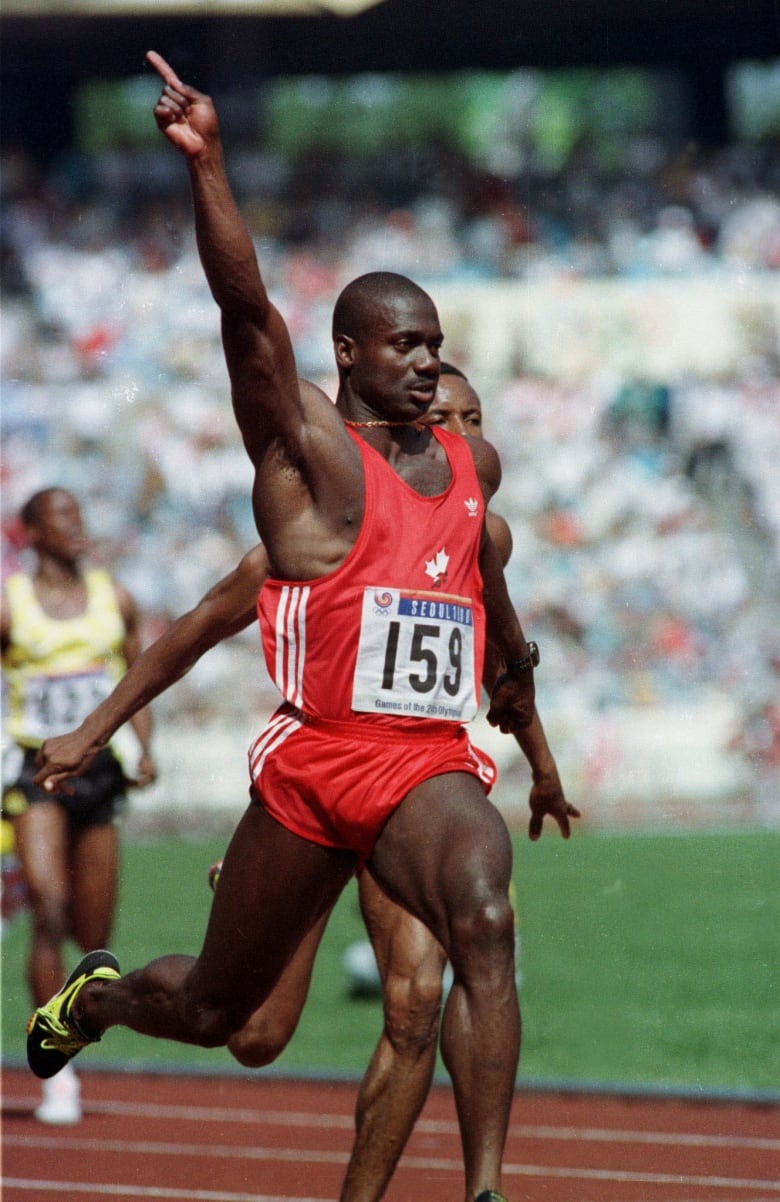
Ben Johnson’s doping scandal during the 1988 Seoul Olympics is an iconic example of an athlete’s dramatic fall from grace. Johnson, a Canadian sprinter, had gained worldwide fame for his exceptional speed, but his career took a shocking turn due to performance-enhancing drugs.
Background:
Ben Johnson was considered the fastest man in the world, setting a world record in the 100 meters at the 1987 World Championships. He was hailed as a national hero in Canada and was expected to dominate the 1988 Olympics.
The Shocking Victory:
In the 100-meter final at the Seoul Olympics, Johnson raced to victory, breaking his own world record. His electrifying performance stunned the world and solidified his status as a legendary sprinter.
The Fall:
However, just days after his triumph, the International Olympic Committee (IOC) announced that Johnson had tested positive for the anabolic steroid stanozolol. The revelation shocked the sporting world, and Johnson’s gold medal was stripped. He was disqualified, and his world record was erased.
The Fallout:
Ben Johnson’s doping scandal had far-reaching consequences. It cast a shadow over athletics and intensified the scrutiny of doping in sports. Johnson’s coach, Charlie Francis, and several other athletes also faced repercussions. The IOC implemented stricter anti-doping measures in the wake of this scandal.
Impact on Johnson:
Ben Johnson’s reputation was irreparably damaged, and he faced a two-year suspension from competitive athletics. Although he attempted a comeback, he never reached his previous levels of success and became a symbol of doping’s destructive impact on athletes.
Legacy:
The Ben Johnson doping scandal remains a cautionary tale for athletes worldwide. It underscores the importance of fair play and the severe consequences of cheating through performance-enhancing substances. The scandal’s ripple effects are still felt in the ongoing fight against doping in sports.
Key Takeaways:
- Ben Johnson’s shocking victory and subsequent doping scandal rocked the 1988 Seoul Olympics.
- His use of stanozolol led to the stripping of his gold medal, erasing his world record.
- The scandal had a profound impact on anti-doping measures in sports and tarnished Johnson’s legacy as a sprinting legend.
3. Lance Armstrong’s Fall from Grace (2012)
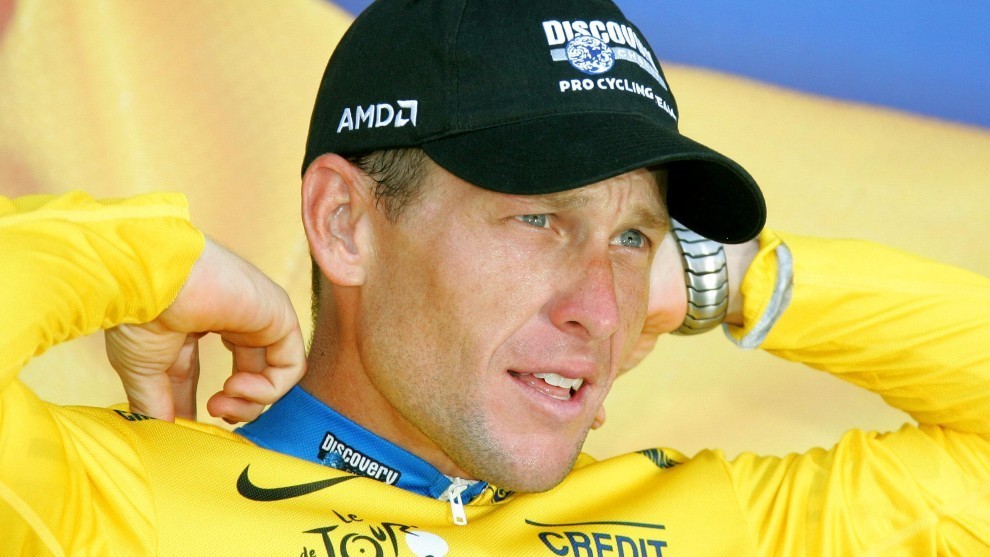
Lance Armstrong, once celebrated as one of the greatest cyclists in history, experienced a stunning fall from grace in 2012 when allegations of doping and a complex web of deceit came to light. This scandal not only shattered Armstrong’s reputation but also had far-reaching implications for the world of professional cycling.
Background:
Lance Armstrong, an American cyclist, achieved unparalleled success in the sport by winning the Tour de France seven consecutive times from 1999 to 2005. His inspirational story as a cancer survivor and his Livestrong Foundation’s charity work made him a global icon.
The Allegations:
For years, rumors of Armstrong’s doping circulated within the cycling community. However, he vehemently denied these allegations and portrayed himself as a clean athlete. It wasn’t until the United States Anti-Doping Agency (USADA) launched an investigation that the truth began to emerge.
The Confession:
In 2012, faced with mounting evidence and testimonies from former teammates, Armstrong finally admitted to doping throughout his career in an interview with Oprah Winfrey. This confession sent shockwaves through the sports world.
The Fallout:
As a result of his admission, Lance Armstrong was stripped of all seven Tour de France titles and banned from professional cycling for life. His sponsors dropped him, and he faced numerous lawsuits, including demands to repay millions of dollars in prize money.
Impact on Cycling:
Lance Armstrong’s fall from grace exposed the pervasive culture of doping in professional cycling. The scandal prompted cycling’s governing body, the International Cycling Union (UCI), to implement stricter anti-doping measures and initiate efforts to rebuild the sport’s credibility.
Legacy:
Lance Armstrong’s story is a stark reminder of the consequences of cheating and deception in sports. His fall from grace tarnished not only his own legacy but also cast a long shadow over the entire sport of cycling.
Key Takeaways:
- Lance Armstrong’s doping scandal involved a high-profile athlete who dominated professional cycling.
- His confession in 2012 led to the loss of his Tour de France titles, sponsorships, and a lifetime ban from the sport.
- The scandal exposed doping issues in cycling and prompted reform efforts to restore the sport’s integrity.
4. Tonya Harding and the Attack on Nancy Kerrigan (1994)

The Tonya Harding-Nancy Kerrigan scandal of 1994 is a dramatic and unforgettable chapter in the history of figure skating, marked by rivalry, intrigue, and a shocking physical assault. This incident not only rocked the world of sports but also became a cultural phenomenon.
Background:
Tonya Harding and Nancy Kerrigan were both accomplished figure skaters from the United States, competing at the highest level. Kerrigan was known for her grace and elegance, while Harding was recognized for her athleticism and powerful jumps.
The Attack:
In January 1994, just weeks before the U.S. Figure Skating Championships, Nancy Kerrigan was brutally attacked by an assailant who struck her knee with a metal baton. The attack aimed to hinder Kerrigan’s ability to compete and secure a spot on the Olympic team.
The Fallout:
The attack on Kerrigan shocked the sports world and garnered extensive media coverage. It was later revealed that Tonya Harding’s ex-husband, Jeff Gillooly, and several others had orchestrated the assault. Harding initially denied any involvement but eventually confessed to having knowledge of the plan.
Olympic Drama:
Despite the controversy, both Kerrigan and Harding were selected for the 1994 Winter Olympics in Lillehammer, Norway. The showdown between the two skaters became a media spectacle, drawing record television ratings. Kerrigan won the silver medal, while Harding finished in eighth place.
Legal Consequences:
Tonya Harding faced legal consequences for her involvement in the attack. She pleaded guilty to hindering the prosecution, received probation, and was banned from competitive figure skating for life by the U.S. Figure Skating Association.
Impact on Figure Skating:
The scandal had a lasting impact on figure skating. It highlighted the intense rivalry and cutthroat competition within the sport, as well as the potential for off-ice drama to overshadow on-ice performances.
Legacy:
Tonya Harding and Nancy Kerrigan’s names remain forever linked in the annals of sports history. The incident’s sensationalism captivated the public and underscored the enduring fascination with sports scandals.
Key Takeaways:
- The Tonya Harding-Nancy Kerrigan scandal involved a physical attack aimed at hindering Kerrigan’s skating career.
- Harding’s involvement and the subsequent media circus had a profound impact on the world of figure skating.
- The incident serves as a reminder of the intense competition and off-ice drama that can sometimes overshadow athletic achievements.
5. The FIFA Corruption Scandal (2015)
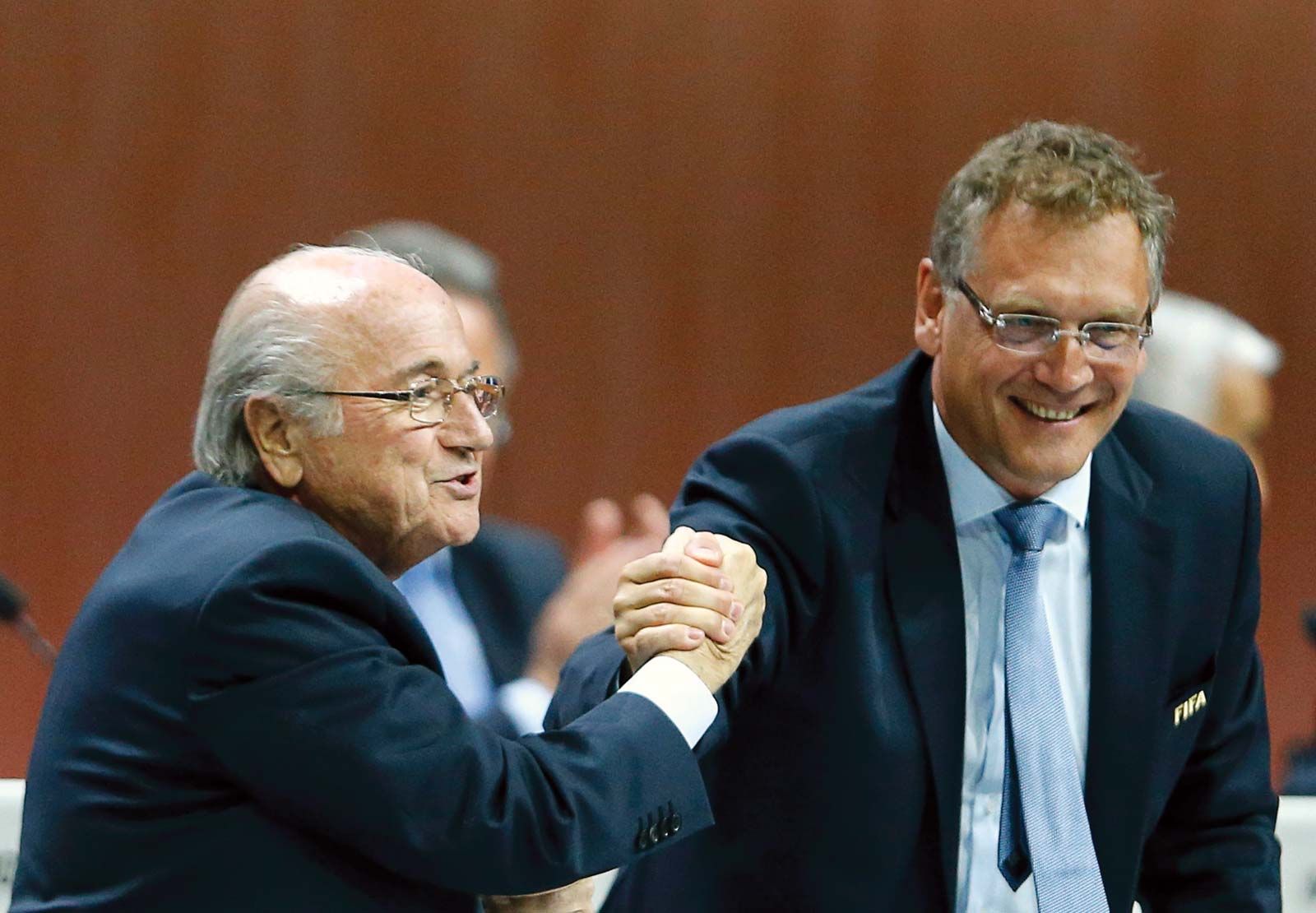
The FIFA Corruption Scandal of 2015 sent shockwaves through the world of international soccer, exposing a web of bribery, kickbacks, and corruption that reached the highest echelons of the sport’s governing body, FIFA (Fédération Internationale de Football Association).
Background:
FIFA is responsible for overseeing and promoting international soccer, including the FIFA World Cup, the sport’s premier event. For decades, rumors and allegations of corruption within FIFA had swirled, but the true extent of the problem came to light in 2015.
The Investigations:
The scandal began with investigations by law enforcement agencies in the United States and Switzerland. They uncovered a wide-ranging scheme of bribery, money laundering, and racketeering involving top FIFA officials and sports marketing companies.
Key Figures:
Several high-ranking FIFA officials were implicated in the scandal, including FIFA President Sepp Blatter and other members of the executive committee. The investigations also revealed the deep-seated corruption within the selection process for hosting the FIFA World Cup.
The Fallout:
The fallout from the scandal was swift and profound. Sepp Blatter was suspended from his position, and several FIFA officials faced arrests and legal actions. The investigations also prompted sponsors to express concerns and withdraw their support from FIFA events.
Reforms:
In response to the crisis, FIFA initiated a series of reforms to clean up its governance and financial practices. This included the election of a new president, Gianni Infantino, and the implementation of transparency measures aimed at preventing future corruption.
Impact on Soccer:
The FIFA Corruption Scandal cast a shadow over international soccer and raised questions about the fairness and integrity of the sport’s governing body. It also led to increased scrutiny of the awarding of World Cup hosting rights and calls for greater transparency in sports administration worldwide.
Legacy:
The scandal serves as a stark reminder of the need for vigilance against corruption in sports governance. While FIFA has taken steps to reform itself, the FIFA Corruption Scandal of 2015 remains a cautionary tale about the potential pitfalls of unchecked power and corruption in international sports organizations.
Key Takeaways:
- The FIFA Corruption Scandal of 2015 exposed widespread corruption within FIFA, involving top officials and marketing companies.
- It led to the suspension of FIFA President Sepp Blatter, arrests, and a series of reforms aimed at cleaning up the organization.
- The scandal highlighted the importance of transparency and accountability in sports governance.
6. The BALCO Scandal (2003)
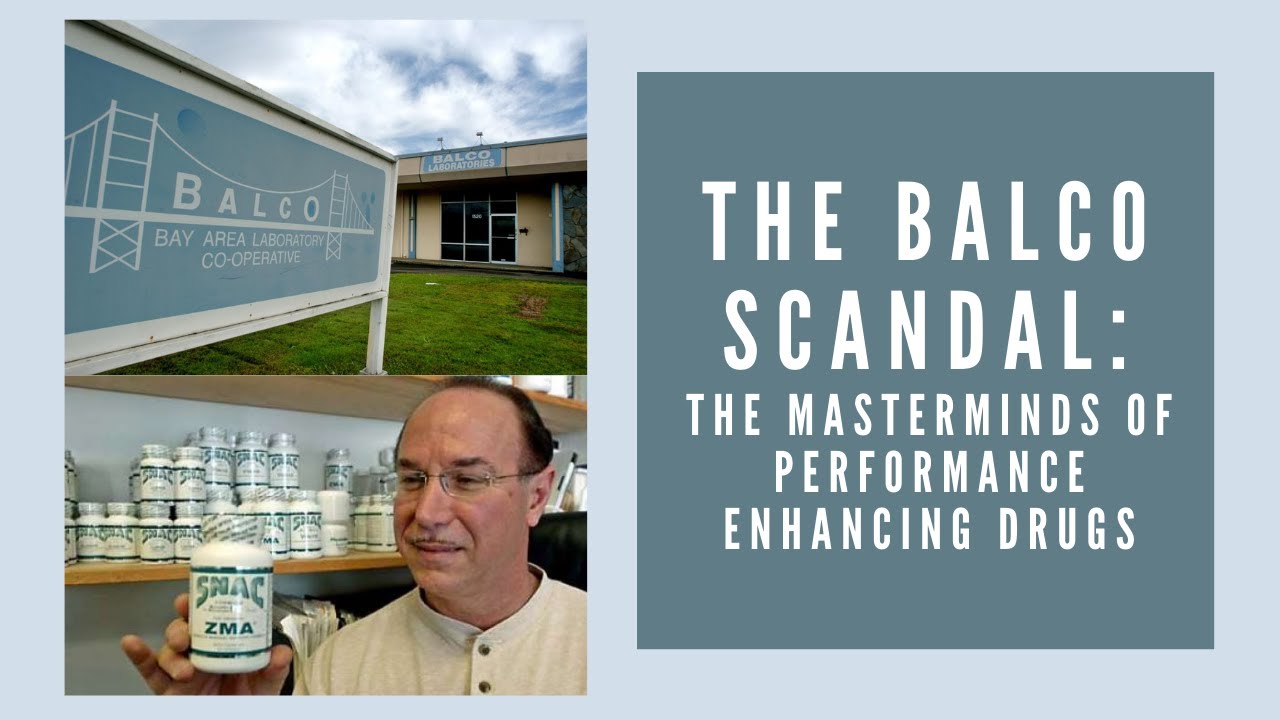
The BALCO Scandal of 2003 was a watershed moment in the world of sports, revealing a sophisticated doping operation that involved elite athletes from various disciplines. BALCO, short for the Bay Area Laboratory Co-Operative, was at the center of this scandal, which exposed the extent of doping in sports.
Background:
BALCO was a California-based laboratory that purportedly specialized in nutritional supplements. However, it was secretly involved in the distribution of performance-enhancing drugs, particularly the designer steroid tetrahydrogestrinone (THG).
The Investigations:
The scandal began to unravel when an anonymous coach sent a syringe filled with the previously undetectable THG to the United States Anti-Doping Agency (USADA). This prompted a joint investigation by USADA, the Federal Bureau of Investigation (FBI), and the Internal Revenue Service (IRS).
Key Figures:
The BALCO Scandal implicated several high-profile athletes, including track and field star Marion Jones, baseball player Barry Bonds, and cyclist Tammy Thomas, among others. These athletes were alleged to have used THG and other banned substances supplied by BALCO.
Legal Consequences:
Marion Jones, who had won five medals at the 2000 Sydney Olympics, admitted to using steroids and lying to federal investigators. She was subsequently stripped of her medals, banned from competition, and sentenced to prison for perjury. Barry Bonds faced charges of perjury and obstruction of justice for allegedly lying about his steroid use during grand jury testimony.
Impact on Sports:
The BALCO Scandal had a profound impact on sports and anti-doping efforts. It exposed the inadequacy of drug testing methods and led to advancements in detection technology. It also served as a wake-up call to athletes about the risks and consequences of doping.
Legacy:
The BALCO Scandal remains a cautionary tale in the fight against doping in sports. It highlighted the lengths to which some athletes and organizations would go to gain a competitive edge, tarnishing the integrity of sports in the process.
Key Takeaways:
- The BALCO Scandal of 2003 exposed a doping operation centered around the distribution of THG, a designer steroid.
- High-profile athletes, including Marion Jones and Barry Bonds, were implicated and faced legal consequences.
- The scandal prompted advancements in anti-doping technology and underscored the importance of fair play in sports.
7. The Russian Doping Scandal (2016)
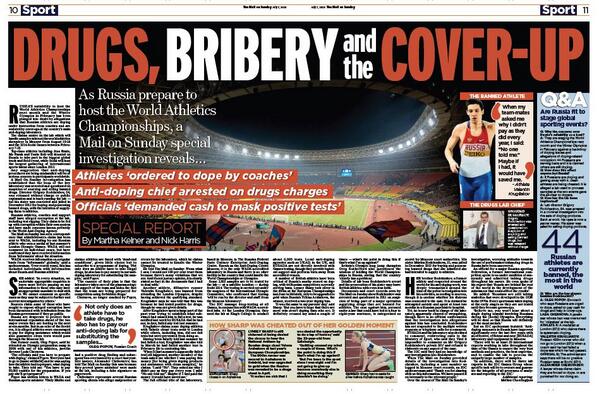
The Russian Doping Scandal of 2016 was a seismic event that shook the world of sports and led to widespread repercussions for Russian athletes and their nation’s sporting institutions. This scandal revealed a systemic and state-sponsored doping program that tainted the integrity of international sports competitions.
Background:
Russia has a long history of success in the Olympics and other international sporting events. However, allegations of widespread doping practices among Russian athletes had been circulating for years, casting a shadow over their achievements.
The Investigations:
The scandal came to a head when Grigory Rodchenkov, the former head of Russia’s anti-doping laboratory, exposed a state-sponsored doping scheme in an interview with The New York Times. His revelations triggered investigations by the World Anti-Doping Agency (WADA) and the International Olympic Committee (IOC).
Key Figures:
Grigory Rodchenkov played a pivotal role in exposing the scandal by revealing the details of the Russian doping program, including the use of performance-enhancing drugs and tampering with urine samples during the Sochi Winter Olympics in 2014.
The Fallout:
As a result of the investigations, Russian athletes faced bans from international competitions, including the 2016 Rio Olympics and the 2018 Pyeongchang Winter Olympics. The Russian flag and national anthem were also prohibited at these events.
Legal Consequences:
Several Russian athletes were stripped of their medals, and there were calls for lifetime bans for those involved in the doping program. Additionally, the Russian Anti-Doping Agency (RUSADA) was declared non-compliant with the World Anti-Doping Code for a period, and Russian officials faced sanctions.
Impact on Russian Sports:
The scandal had a significant impact on Russia’s sporting reputation and its ability to participate in international competitions. It led to increased scrutiny of Russian athletes and stricter anti-doping measures within the country.
Legacy:
The Russian Doping Scandal serves as a stark reminder of the importance of maintaining the integrity of sports through rigorous anti-doping measures. It also highlights the consequences of a state-sponsored doping program on a nation’s athletes and sporting institutions.
Key Takeaways:
- The Russian Doping Scandal of 2016 exposed a state-sponsored doping program involving Russian athletes.
- Russian athletes faced bans from international competitions and sanctions as a result of the scandal.
- The scandal underscores the importance of vigilance against doping in sports and the need for rigorous anti-doping measures.
8. The New England Patriots’ Spygate (2007) and Deflategate (2015)
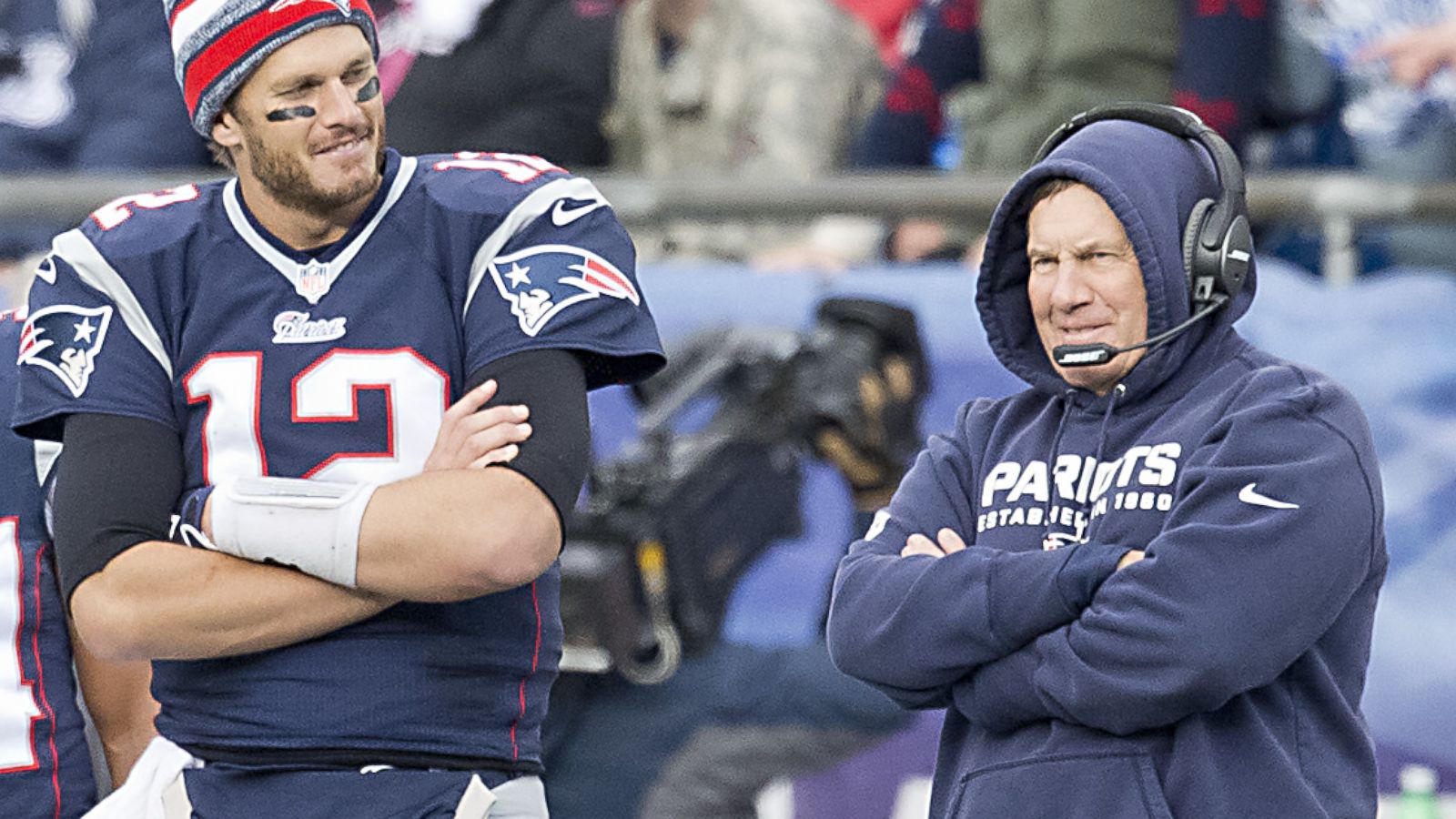
The New England Patriots, one of the most successful franchises in NFL history, found themselves embroiled in two major scandals that rocked the football world. These scandals, known as Spygate (2007) and Deflategate (2015), raised questions about the team’s ethics and sportsmanship.
Spygate (2007)

Background:
Spygate came to light during the 2007 NFL season when the New England Patriots were caught videotaping the signals and defensive strategies of the opposing teams, particularly the New York Jets. Coach Bill Belichick and the Patriots were accused of violating league rules by engaging in covert surveillance.
The Controversy:
It was revealed that the Patriots had been taping opponents’ signals over several years, potentially giving them an unfair advantage in games. The NFL conducted an investigation, fined Belichick and the team, and stripped them of a first-round draft pick. The scandal raised questions about the team’s integrity and fair play.
Legacy:
Spygate tarnished the reputation of the New England Patriots and fueled criticism of their success, with some attributing their championships to questionable tactics. It remains a black mark on the team’s otherwise stellar record.
Deflategate (2015)

Background:
Deflategate emerged during the 2015 AFC Championship Game between the Patriots and the Indianapolis Colts. The NFL found that several footballs used by the Patriots were under-inflated, which could provide a competitive advantage, particularly in cold weather.
The Controversy:
The controversy revolved around whether the deflation of footballs was intentional and whether quarterback Tom Brady was involved. Brady was suspended for four games, and the Patriots were fined and docked draft picks. The scandal sparked a lengthy legal battle between Brady, the NFL Players Association, and the league.
Legacy:
Deflategate created a divisive debate in the sports world, with some believing the punishment was excessive, while others saw it as a necessary response to rule violations. It also put a spotlight on the integrity of the game and the role of officials in enforcing rules.
Key Takeaways:
- Spygate (2007) involved the New England Patriots secretly videotaping opponents’ signals, resulting in fines and draft pick penalties.
- Deflategate (2015) centered around under-inflated footballs used by the Patriots and led to the suspension of Tom Brady and fines for the team.
- Both scandals raised questions about the ethics of the team and impacted their legacy in the NFL.
9. Pete Rose’s Betting Scandal (1989)
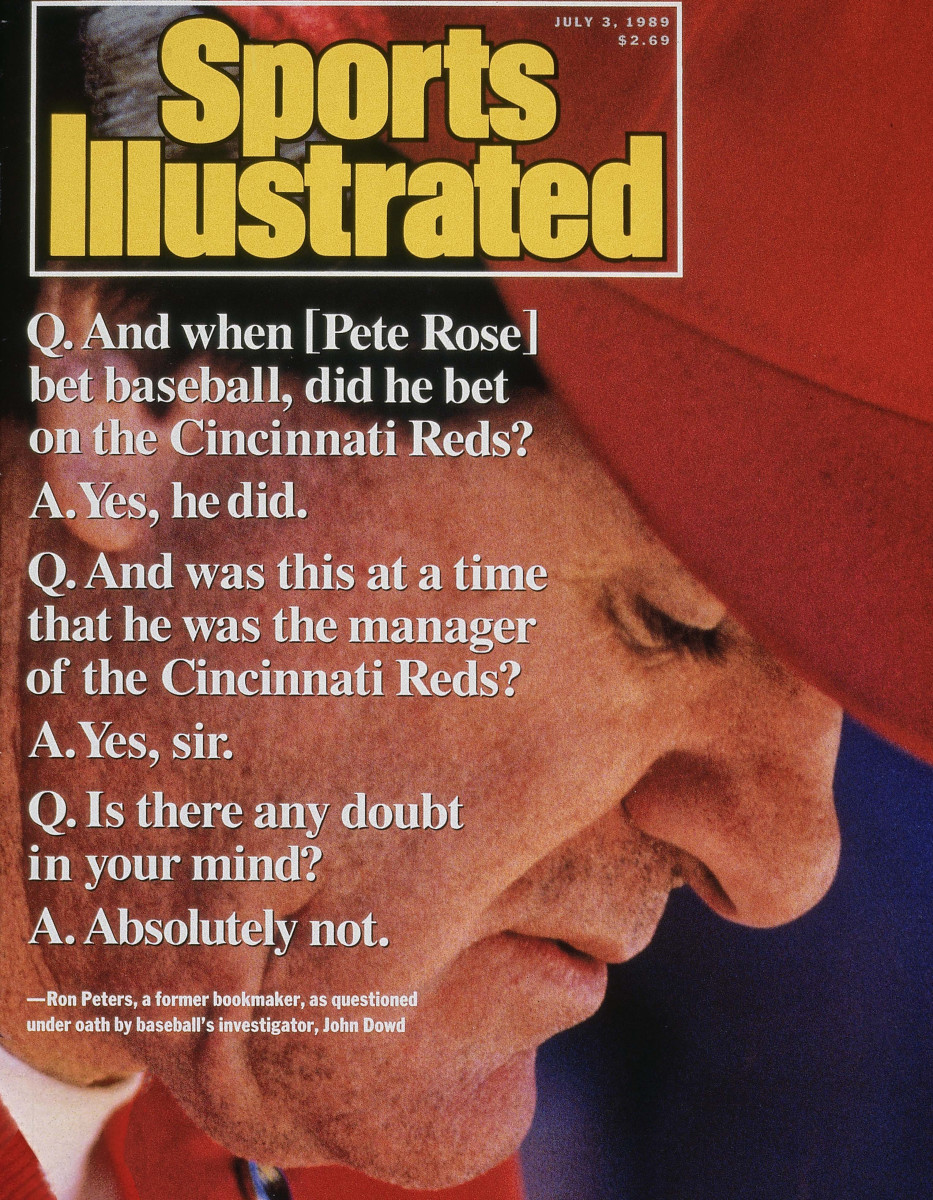
Pete Rose’s betting scandal in 1989 remains one of the most infamous incidents in the history of Major League Baseball (MLB). The scandal not only tarnished the reputation of one of baseball’s greatest players but also raised questions about the integrity of the sport itself.
Background:
Pete Rose, often referred to as “Charlie Hustle,” was a legendary baseball player known for his tenacity and relentless work ethic. He enjoyed a long and illustrious career, becoming MLB’s all-time hits leader.
The Betting Allegations:
In 1989, allegations emerged that Pete Rose had placed bets on baseball games, including games involving his own team, the Cincinnati Reds, while he was both a player and manager. The allegations suggested that Rose had violated MLB’s strict rules against gambling on the sport.
The Investigation:
The Commissioner of Baseball, A. Bartlett Giamatti, launched an investigation into the betting allegations. During the investigation, evidence, including betting slips and testimony, surfaced to support the claims against Rose.
The Banishment:
In August 1989, as the investigation concluded, Pete Rose agreed to a voluntary lifetime ban from baseball. This meant he could no longer participate in any capacity, including coaching or managing, in the MLB. Rose’s banishment from the Hall of Fame was a significant fall from grace for one of the game’s most beloved figures.
Legal Ramifications:
Pete Rose’s betting scandal had legal consequences as well. While he didn’t face criminal charges, the ban from baseball effectively ended his career, and he was left ineligible for Hall of Fame induction.
Legacy and Controversy:
The Pete Rose betting scandal remains one of the most divisive issues in baseball. Some argue that his lifetime ban is too harsh, given his contributions to the sport as a player. Others believe that gambling on baseball, especially by someone so closely associated with the game, is an unforgivable breach of trust.
Key Takeaways:
- Pete Rose’s betting scandal involved allegations of gambling on baseball games, including those in which he played or managed.
- The scandal led to a lifetime ban from baseball, impacting his career and Hall of Fame eligibility.
- The controversy surrounding Pete Rose’s banishment continues to provoke debate in the world of baseball.
10. The Olympics’ East German Doping Scandal (1970s-1980s)
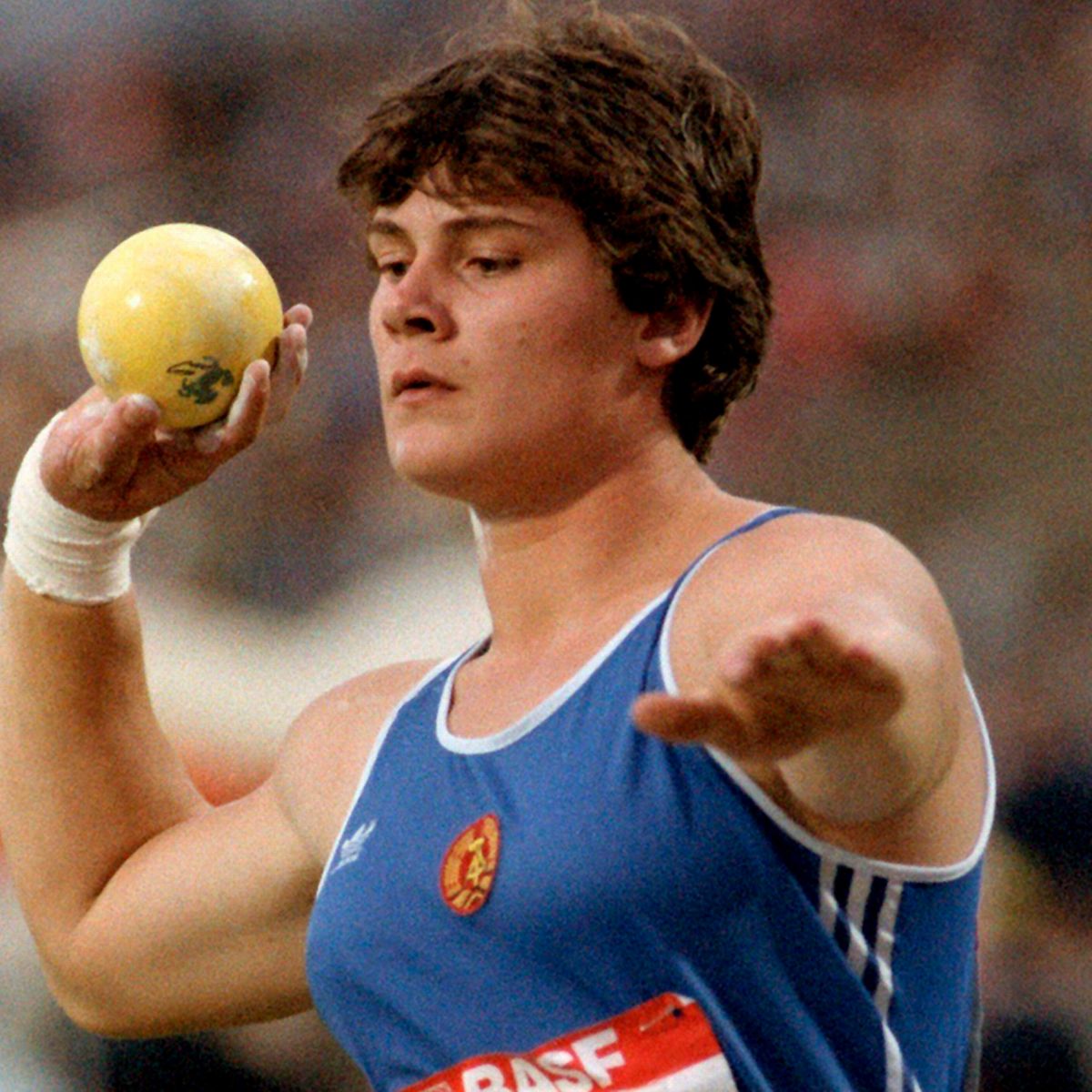
The East German Doping Scandal, spanning the 1970s and 1980s, remains one of the most shocking and extensive instances of state-sponsored doping in the history of sports. This scandal rocked the Olympic world and left a lasting legacy of ethical and health concerns for athletes.
Background:
East Germany, during the Cold War era, was known for its systematic approach to sports excellence. In pursuit of athletic supremacy, the government implemented a comprehensive doping program for its athletes, including many Olympic competitors.
The Doping Program:
The East German government, with the involvement of sports officials and medical professionals, administered performance-enhancing drugs to athletes, often without their knowledge or consent. These drugs, including anabolic steroids, were designed to boost strength, endurance, and recovery.
Unprecedented Success:
East German athletes achieved remarkable success in international competitions, particularly at the Olympics. They dominated in events like swimming and track and field, raising suspicions among competitors and observers worldwide.
Exposure and Investigations:
The East German Doping Scandal came to light following the fall of the Berlin Wall and the reunification of Germany in the early 1990s. Athletes, coaches, and medical personnel began speaking out about the extensive doping program. Investigations and legal actions followed.
Health Consequences:
Many athletes who had been subjected to the doping program suffered severe health issues, including hormonal imbalances, reproductive problems, and long-term psychological effects. The scandal highlighted the devastating toll of doping on athletes’ well-being.
Impact on the Olympics:
The scandal had a profound impact on the Olympic movement, emphasizing the need for stringent anti-doping measures and ethical standards. It also led to the overhaul of doping control protocols and increased awareness of the importance of athlete consent and health.
Legacy:
The East German Doping Scandal serves as a dark chapter in the history of the Olympics, underscoring the lengths some nations would go to for athletic success. It remains a cautionary tale of the ethical, medical, and moral challenges that can arise when the pursuit of medals takes precedence over athlete welfare.
Key Takeaways:
- The East German Doping Scandal involved a state-sponsored doping program that spanned the 1970s and 1980s.
- Athletes suffered severe health consequences as a result of the program, and the scandal highlighted the need for ethical and health-focused practices in sports.
- The legacy of the scandal includes reforms in anti-doping efforts and a heightened emphasis on athlete well-being in international sports.
FAQ
Here are some frequently asked questions about sports scandals:
1. What is a sports scandal?
A sports scandal refers to any event or incident in the world of sports that involves unethical or illegal behavior, such as cheating, doping, match-fixing, or other actions that tarnish the integrity of the sport.
2. Why do sports scandals happen?
Sports scandals can occur for various reasons, including the pursuit of fame and fortune, intense competition, pressure to win at all costs, and sometimes the involvement of athletes, coaches, or organizations in unethical practices.
3. How do sports scandals impact athletes?
Sports scandals can have profound effects on athletes, including damage to their reputation, suspension or bans from competition, legal consequences, and psychological stress. Some athletes may struggle to recover from the fallout of a scandal.
4. What measures are taken to prevent sports scandals?
To prevent sports scandals, sports organizations and governing bodies implement strict rules and regulations, conduct regular drug testing, enforce codes of conduct, and promote fair play and sportsmanship. Additionally, legal actions and penalties are imposed on those found guilty of misconduct.
5. What can we learn from sports scandals?
Sports scandals serve as important lessons about the importance of ethics, fair competition, and the consequences of cheating. They also highlight the need for transparency, integrity, and strong anti-doping efforts in the world of sports.
6. Are sports scandals limited to a specific sport or country?
No, sports scandals can occur in any sport and in any country. While some scandals may be more prominent in certain sports or regions, unethical behavior in sports is a global issue that requires vigilance and accountability from all stakeholders.
7. What can fans do in response to sports scandals?
Fans can hold athletes, teams, and sports organizations accountable by demanding transparency, supporting anti-doping efforts, and advocating for fair play. It’s important for fans to express their disappointment and concern when sports scandals arise.
8. Do sports scandals ever lead to positive changes in sports?
Yes, sports scandals can lead to positive changes. They often prompt sports organizations to reevaluate and strengthen their anti-doping measures, ethical guidelines, and enforcement mechanisms. These changes aim to restore trust and integrity in sports.
Conclusion
In conclusion, sports scandals have been a recurring and unfortunate aspect of the world of athletics. These scandals range from doping and cheating to match-fixing and unethical behavior, and they have left a lasting impact on the athletes, teams, and the sports themselves.
Throughout this blog post, we’ve explored some of the most notorious sports scandals in history, including the Black Sox Scandal, Ben Johnson’s Doping Scandal, Lance Armstrong’s Fall from Grace, Tonya Harding and the Attack on Nancy Kerrigan, the FIFA Corruption Scandal, the BALCO Scandal, the Russian Doping Scandal, the New England Patriots’ Spygate and Deflategate, Pete Rose’s Betting Scandal, and the East German Doping Scandal.
These scandals have highlighted the importance of ethical conduct, fair play, and the need for stringent anti-doping measures in sports. They have also shown that the consequences of cheating and unethical behavior can be far-reaching, affecting not only the athletes involved but also the reputation of the sports themselves.
As fans and stakeholders in the world of sports, it’s crucial to remain vigilant and demand transparency, integrity, and accountability from athletes, teams, and sports organizations. While sports scandals can be disheartening, they also serve as reminders of the ongoing efforts needed to preserve the integrity and fairness of the games we love.
Thank you for exploring these sports scandals with us, and may the lessons learned from these incidents contribute to a future where sports are defined by their integrity, sportsmanship, and the extraordinary achievements of athletes who play by the rules.
